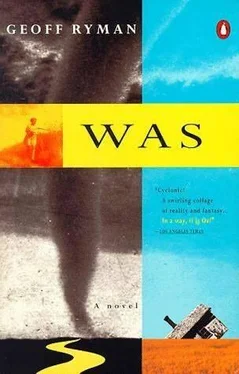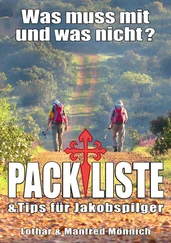It was your father, Frances. And the one good thing I've done in my life is never tell you. I know he is the only thing you still hold dear. So I don't tell you, and I will never tell you. You will go to your grave not knowing. So if there is a God, maybe He'll forgive me for that. Maybe there are Gates, and maybe they will open for me.
I left Frank Gumm because he would destroy us, Baby. I worked us so hard because we needed to be able to make a living without him. He was driven from Lancaster because of the things he did there, with everyone knowing. They tried to forgive him, poor Frank, poor poor beautiful Frank. They tried to forgive him, and tried to ignore it, but I guess without me there, he just went to pot. Went too far. Danny Boy.
Oh God, I'm crying. Why am I crying for him? Poor Frank. Poor fat balding little boy, always hoping every time he shook a man's hand that he had found it, love, a friend, something true out of a life of lies and horror. Poor Frank, trying hard to love me. And he succeeded. He succeeded in loving me, not for my breasts or my body, but loving me for the pattern we made, the pattern I can't escape, the pattern in the lights, the pattern in the song, the pattern in our three little girls, all of us singing in the magic circle of the lights. That was Heaven. If those Gates open, if I am forgiven, that is what I expect Heaven to be. The stage of the Valley Theater, with all of us together again, but in spirit, in the pattern. How could we lose so much? How could we fumble so badly? Maybe beyond the Gates, Baby, we'll all be healed.
Ghosts, Baby. We're ghosts, haunting each other now. We went back to Lancaster once, remember, back when you and I were still friends. I sat in the limousine, terrified, while you went to see that awful girl. I was terrified that if I got out, I'd stay. I'd find Frank still there, and the life of lies. I was frightened I'd see him walking down Cedar Street, and that he'd wave, poor ghost, not knowing he was dead, and that I was ten years older. That he'd go back to our house, and find someone else living there. Where are our babies? he'd ask. Did we fail, then? Did it happen in the end? And I would have to say, in a sour and weary voice, Yes, Frank, it happened again. What did you expect? It happened again, and it killed you.
So I sat huddled in that car, telling myself it was the heat that I was hiding from. But it was hotter inside the car than out. So I braved it. I got out and waited and wondered how long you would be. And then I went for a little walk.
And I felt it, a brush against my hand. And it was as if I had my Baby back, the little baby hidden away in that huge, bitter shell. And my Baby and I walked through those barren, flat, blistered streets as if the future had not come to destroy us. And I felt another hand, plump and soft and large and damp, and it was Frank. And Jinnie ran on ahead, Janie looked uncomfortable, and I knew we were still in Lancaster somewhere. Somewhere, maybe, in the wind. The wind makes a noise in the tamarisk. In the dust.
You haven't seen Muggsie since, and I'm not sure who you are married to now, except that I haven't met him and never will. But somewhere I still love my Baby, and I have to hope that somewhere in the wilderness she still loves me. But I can't touch the love, and I can't find the truth. So I still have to go on.
Go on calling the truth the Devil that only comes in idleness.
Ethel Milne Gumm Gilmore looked at her watch.
Thump.
Thump.
Eight-fifteen. Now I'm late. Late for real. Oh, Ethel, sitting here like a lump when you should be moving.
Her body didn't respond. It didn't want to move. Come on, Ethel. There's a time clock. You have to punch it to eat. You have to punch it and write on cards and file them and put papers away.
I don't want to, her body replied. I want to go play piano. I want to sit here and look at the sky.
Like moving through mud, Ethel turned. She turned and fumbled with the door. Makeup, she remembered. I haven't done my makeup. With terrible weariness, she looked at her face in the mirror. It was gray and covered with sweat and streaked with foundation that hadn't been worked and smoothed. The foundation slipped, skidding across her face as she rubbed it. She smeared on some lipstick. Her lips were sweaty, as if she were melting. Getting up early doesn't suit the old, she told herself.
Shortcut. Cut between the cars. The car door felt like slippery rubber in her hands. Her feet felt like the shoes were too big, with heels that were loose. I should have eaten something. I feel so hollow inside. Empty. Empty. A nothingness, waiting to suck me in.
She began to hurry. She needed to get inside the plant. There would be shade there, and chairs, and she could sit, and fan herself, get herself together, tell her boss she was sick. There was a first-aid room, a couch to rest on. She was hot though the air was cold. She stepped outside and vapor rose out of her, from her nostrils, from the back of her hands.
She steamed out into the California morning that was so bright, ablaze with light so that it burned her eyes; she felt dizzy; she couldn't see. A shortcut, she told herself. A shortcut between the cars, the strangers' cars, gray and blue and red, other people's cars, not hers. All her life, living among people's cars, driving along the Mint Canyon Highway.
Thump. As in a cyclone, breath was taken from her. She tried to breathe, pull in air, but it wouldn't come. A fist seemed to have clenched her chest. It held her vengefully. Kneel, it said. Kneel before your God.
I don't have one, she thought, her thoughts in a thin and pitiful voice. A blaze of light that meant nothing, I have no God, and I am forced to kneel to nothing. She was down on her knees between the strangers' cars. Her arms were stretched apart, each hand clasping a door handle to keep from falling. All the big, washed cars were lined up in judgment, at the gates of McDonnell Douglas, the strange and unimagined ending place of her life. She knelt in the light and asked forgiveness, as we all must, for failing without knowing why, and for living so long without seeing so much. But kneeling in the light, settling through it, crucified between two door handles, it seemed to her that she was. Forgiven. Or rather, that there was nothing to forgive. Ethel Milne was borne away.
She did not know that her daughter had had a change of heart and was making plans with her lawyer to arrange financial support for her mother. The Gumm sisters came to the funeral and did not speak to each other. There was too much to say. For Frances it was one more tightening of the knot, one more loop in the tangle. One month later, in February 1953, the Valley Theater, Lancaster, was hollowed out by a fire, as if a revenging spirit had raged through its aisles. It was not rebuilt. It is now difficult, even with old maps, to reconstruct where it once stood.
Part Two. The Summer Kitchen
Manhattan, Kansas-1881
…the men burning houses and barns and horses so that for ten years and more the countryside was an inferno of revenge, broken by a fifth season of arson. The tramps who packed guns and overran whole towns. The old men who went mad with jealousy. The old women who jumped down wells. All those mothers: the ones who carried their children into the rivers, the ones who fed them arsenic and strychnine so that, if they had to die, at least it wouldn't be of epidemic disease… All the men who cleansed the putrescence of their lives with carbolic acid. All the others who killed themselves with the same insecticide they used on the potato bugs…
By the end of the nineteenth century, country towns had become charnel-houses and the counties that surrounded them had become places of dry bones. The land and its farms were filled with the guilty voices of women mourning for their children and the aimless mutterings of men asking about jobs. State, county, and local news consisted of stories of resignation, failure, suicide, madness and grotesque eccentricity. Between 1900 and 1920, 30 per cent of the people who lived on farms left the land…
Читать дальше












